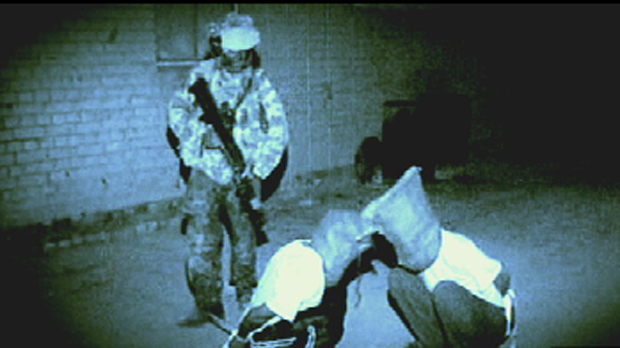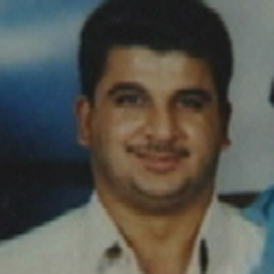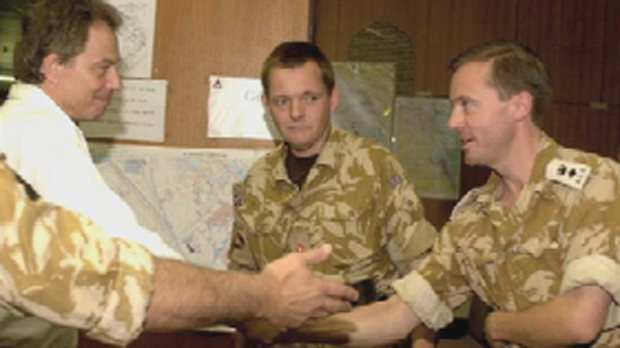Top army lawyer slams MoD over human rights abuses
Exclusive: The army’s top lawyer during the Iraq war tells Channel 4 News his superiors blocked him when he tried to make British forces treat prisoners in a lawful way, writes Callum Macrae.
Warning: You may find parts of this report distressing.
Shami Chakrabarti of Liberty describes him as “a human rights hero and a military hero as well. A man of principle and a credit to both the legal profession and the corps of officers in the British Army.”
One imagines that Lt Col Nicholas Mercer’s former superiors in the Ministry of Defence might choose different words.
Lt Col Mercer was the commander legal of the British land forces that invaded Iraq at the start of the war in 2003. He was, in other words, the army’s top lawyer in Iraq. A successful and well-regarded career officer, it was his job to make sure British troops stayed within the law.

But Lt Col Mercer’s efforts to do that job were to cost him his dear. And in an exclusive interview with Channel 4 News he describes how he was blocked, harassed and mocked by his superiors in the MoD as he tried to make sure British forces treated prisoners in a lawful and humane way.
When he said hooding of prisoners was unlawful and must stop, he was told it was a legitimate part of “UK doctrine”. But it turned out he was right.
When he said that prisoners were entitled to protection under the European Convention of Human Rights, the MoD said he was wrong. He says they stopped him from raising his concerns and refused to implement procedures he proposed. But again it has turned out he was right and the MoD was wrong in law.

Baha Mousa
Yet had the procedures he proposed been implemented, it is likely that innocent Iraqi hotel worker Baha Mousa – who died after 36 hours of abuse and beating at the hands of British soldiers – would still be alive. Had he been listened to, Britain would have saved tens of millions of pounds paid out in compensation and legal fees.
And – many argue – had his professional advice been taken, Britain’s reputation would not have been tarnished by the allegations of torture and mistreatment which continue to surround operations in Iraq and have tarnished the UK’s reputation around the world.
So why did this happen? Mercer argues that the root cause is what he calls an attitude of “moral ambivalence” about Britain’s human rights obligations which goes right to the top of the MoD.
“I think the millions of pounds that are spent by the Ministry of Defence trying to extract itself from the European Convention of Human Rights was extraordinary,” he says. “It’s an absurd position – and in fact what’s wrong with giving people human rights?”
Read more: Baha Mousa inquiry damning on many levels

‘Ambivalent attitude’ on human rights
The charge that they have an “ambivalent attitude” to human rights is vigorously rejected by the MoD, who told us: “The chief of the general staff has already apologised for the loss of discipline and lack of moral courage that occurred… troops now undergo training in international humanitarian law and in Afghanistan, where detaining and interrogating key insurgents is critical to our mission, high standards are being set and adherence to them is rigorously monitored.”
Last week Nicholas Mercer – his career stalled and having lost out on promotion and additional pension rights – left the army. For the last three years, while effectively suspended for raising human rights concerns, Mercer has been training as an Anglican priest. Last week he was ordained.
The MoD may privately breathe a sigh of relief. But its critics are unlikely to let it off the hook.
“Col Mercer was clear that abuse was illegal. Unequivocal in his legal advice,” says Shami Chakrabarti of the human rights organization, Liberty. “We need more people like him – we need more people to listen to people like him.”
Follow @Callum_Macrae on Twitter.

Lt Col Mercer (right) meeting Tony Blair during the Iraq conflict.